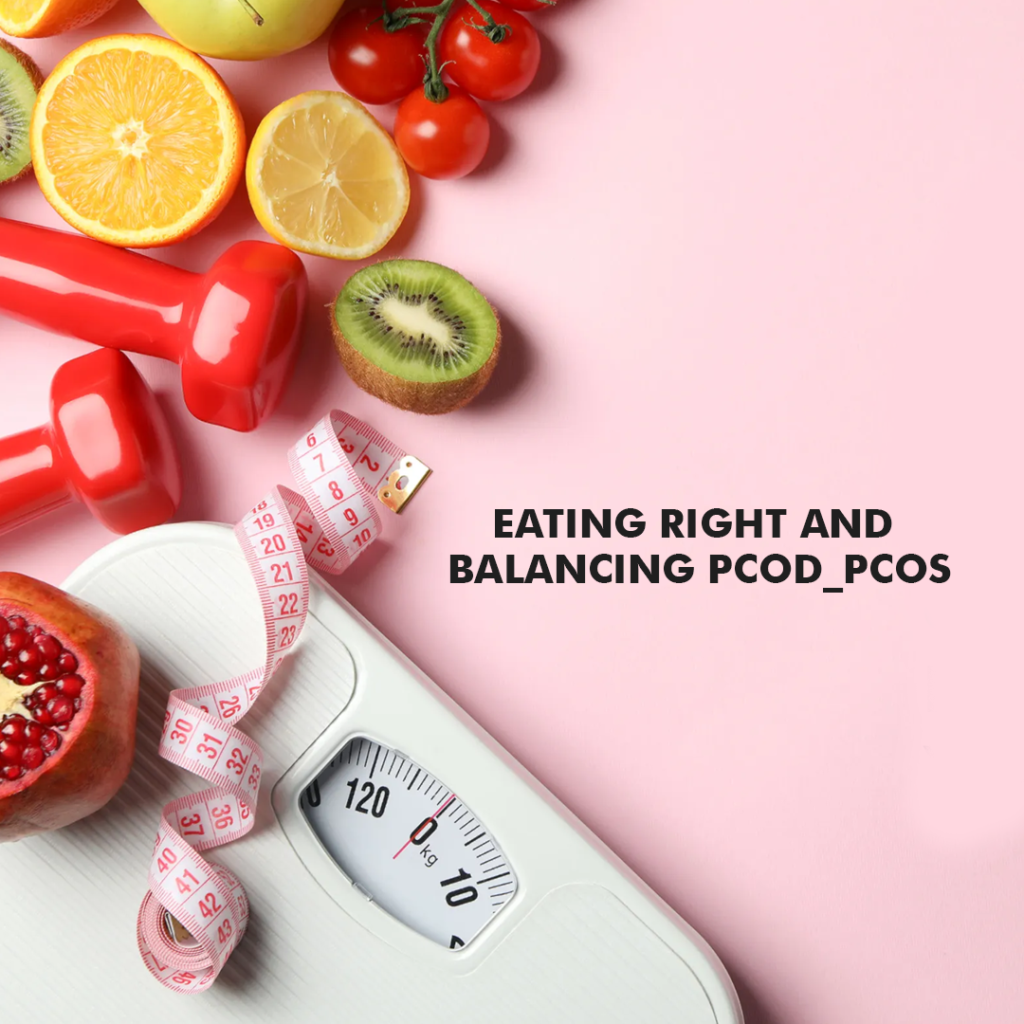Eating Right and Balancing PCOD/PCOS

Many women grappling with PCOS have discovered that they can effectively address their symptoms through dietary modifications. This frequently involves increasing the intake of high-fiber foods and lean proteins while restricting the consumption of refined carbohydrates and sugary foods.
Polycystic Ovary Syndrome (PCOS) and Polycystic Ovary Disorder (PCOD) are common endocrine disorders that affect millions of women worldwide. While these conditions can pose challenges, adopting a balanced and mindful approach to nutrition can play a crucial role in managing symptoms and promoting overall well-being.
PCOD/PCOS is characterized by hormonal imbalances, insulin resistance, and the development of small, fluid-filled cysts on the ovaries. Symptoms can include irregular periods, weight gain, acne, and increased levels of androgen hormones. Nutrition plays a key role in managing these symptoms and promoting hormonal balance.
Balanced Nutrition for PCOD/PCOS
Focus on Complex Carbohydrates
Opt for complex carbohydrates with a low glycemic index to help regulate blood sugar levels. Include whole grains, legumes, and vegetables in your diet, while limiting refined sugars and processed foods.
Include Lean Proteins
Include lean protein sources like fish, poultry, tofu, and legumes. Protein helps stabilize blood sugar levels and promotes a feeling of fullness, preventing overeating.
Healthy Fats are Essential
Include healthy fats sources like nuts, avocados, seeds, and olive oil. These fats are important for hormone production and can aid in managing weight.
Stay Hydrated
Proper hydration is crucial for overall health. Water helps flush out toxins, supports metabolism, and aids in digestion. Opt for water over sugary drinks or excessive caffeine.
Choose Anti-Inflammatory Foods
Include foods rich in antioxidants and anti-inflammatory properties, such as berries, leafy greens, and fatty fish. These can help reduce inflammation associated with PCOD/PCOS.
Limit Processed Foods
Processed foods contain unhealthy fats, added sugars, and preservatives. Minimize their intake and focus on whole, nutrient-dense foods.
Consider Supplements
Consult with a healthcare professional to determine if supplements such as omega-3 fatty acids, vitamin D, and inositol may be beneficial in managing PCOD/PCOS symptoms.
Mindful Eating Practices
Pay attention to hunger and fullness cues and eat mindfully. Avoid stress-eating and take the time to enjoy your meals.
Regular Physical Activity
Combine a balanced diet with regular exercise to enhance insulin sensitivity and promote weight management. Consult a healthcare provider to determine the most suitable exercise routine for your needs.
Dealing with PCOS can be frustrating, but incorporating a PCOS-friendly diet and making lifestyle adjustments may contribute to an improved mood and a reduction in associated symptoms.
It’s important to note that a PCOS-friendly diet involves some restrictions on certain foods. However, it’s often possible to find nutritious alternatives to these restricted items. For instance, if your typical breakfast includes margarine and white toast, consider replacing them with high-fiber whole-grain bread accompanied by olive oil or avocado.
Should your symptoms persist, it’s advisable to consult with a doctor. They can collaborate with you to check the underlying causes and provide guidance on the necessary next steps in managing your condition.
